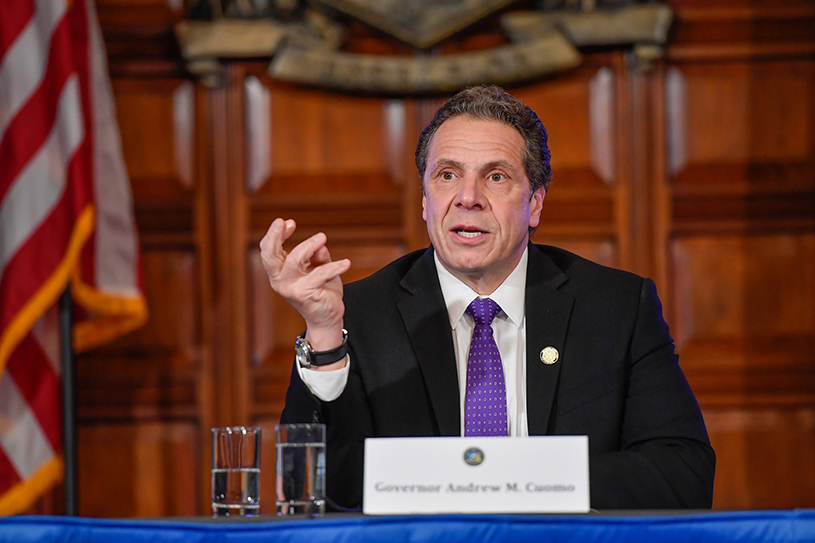Education
City and state education officials weigh in on the charter debate

New York wasn’t the first state to pass a law authorizing charter schools – Minnesota led the way in 1991. Nor does New York have the most students attending charter schools – California is tops in absolute numbers, according to 2014 data from the National Center for Education Statistics, while the District of Columbia has the highest percentage of students attending such schools.
But ever since 1998, when Gov. George Pataki signed the state’s charter school law, New York has been a battleground for clashes over everything from charter school funding to building space to transparency.
Gov. Andrew Cuomo has rallied behind charters in recent years, and New York City Mayor Bill de Blasio, a fellow Democrat, has sided with the teachers unions. Michael Mulgrew and his influential United Federation of Teachers, the country’s largest local teachers union, are among the staunchest charter opponents. Eva Moskowitz, the founder and CEO of New York City’s Success Academy Charter Schools, is one of the country’s most outspoken defenders of charters – even catching the eye of President Donald Trump’s administration, which considered her as a possible education secretary nominee. And right now in Albany, state Senate Republicans are pushing for a higher charter school cap in New York City, which Assembly Democrats reject.
In the following interviews with Susie Miller Carello, executive director of the SUNY Charter Schools Institute and New York City Schools Chancellor Carmen Fariña, we look at how the charter school battle will play out in the final days of the state legislative session.
RELATED: Charter schools vs. mayoral control: will anyone back down?
Susie Miller Carello
Executive director, SUNY Charter Schools Institute
C&S: The latest state budget tied charter school funding to public school funding, but kept charter funding lower. Are you happy with the arrangement? Should the funding be tied together?
SMC: Charter school financing is a challenge for everyone across the state. It’s a challenge for both charters, who outside of New York City don’t get access to funding to support facility needs, and the districts say it’s a challenge to them. The schools have done a great job in working within some budget considerations.
C&S: State Senate Majority Leader John Flanagan has considered tying the charter cap to mayoral control. Is it fair to tie the issues? Are you comfortable with raising the cap?
SMC: We have about 30 charters left in New York City and I think 170 charters left outside (New York City) for any of the authorizers, including SUNY, to grant. We anticipate granting four New York City charters and two upstate charters (on June 8) when our charter schools committee votes on this round of applications. And we just received applications for nine additional charters – one outside of New York City. So I’m not sure what the region’s approval rate will be this year, but we’ll continue to grant the charters as long as they’re there because our job is to implement the Charter Schools Act.
C&S: There are some 44,000 kids on charter school waiting lists just in New York City. How can charter schools better accommodate this demand?
SMC: There’s continued growth in the number of charters that are opening every year. And I also think that parents really don’t care what the label on their school is, they care about having a great school choice. In addition to being a great authorizer, we create an environment where good charter schools can take root and thrive. Our schools are also working with their district counterparts to improve any school that a parent might choose. A number of our schools include district principals and teachers in their professional development training. They work with them together in the summer because charter school teachers, just like district school teachers, want to run a great school for kids that come into their classroom every day.
RELATED: The charters debate is more than Republicans vs. Democrats
Karin Goldmark
Senior Education Policy Advisor to the First Deputy Mayor
C&S: Republican state Senate Majority Leader John Flanagan has proposed tying the state’s cap on total number of charter schools to mayoral control of New York City schools. Is it fair to tie the two issues together? Are you comfortable with raising the charter school cap?
CF: This is a clear admission from the Senate that mayoral control works. New York City schools have seen their highest graduation rates, lowest dropout rates and rising test scores. Mayoral control is a proven governance model that shouldn't be held hostage to political horse-trading.
C&S: On that note, what are you pushing for in regards to extending mayoral control? A permanent extension? A few years?
CF: We’re looking for a multiyear extension.
C&S: A majority of charter school co-location requests are denied by the city. What makes a good co-location, and why aren’t more of them approved?
CF: Currently over 40 percent of Department of Education buildings house co-located schools. When assessing the feasibility of a co-location, we look at a building’s current capacity and the projected capacity once the schools in the building are at scale. This includes accounting not just for the enrollment, but also any known projects in or around a building that might impact space availability. Out of 182 buildings that appear to have (more than) 300 excess seats in the 2015-2016 Blue Book, nearly half had building plans that were not yet at scale during that school year. The Blue Book is only a starting point for assessing space availability, and seats shown in the Blue Book may not correspond to a sufficient number of classrooms ?or an adequate location within the building that could support a new organization of the size requested.
RELATED: Higher education is about to become the next political battlefield
WHAT GOT DONE

A charter school disagreement was one of the fights that pushed the state budget past the April 1 deadline this year. It’s a contentious policy topic that pitted Assembly Democrats, who are aligned with the teachers unions and traditional public schools, against state Senate Republicans, who see charters as an avenue for reform.
While a higher cap on charter schools in New York City was dropped out of the budget – and has been hotly contested in the second half of the legislative session – there were a few key changes that did go through. Here are the details, by the numbers:
$500
Per pupil increase in state aid for charter schools, which will also be pegged to increases for public schools in the future.
30 Percent
The share of a charter school’s per-pupil tuition rate that the school is eligible for in order to cover rent if it is not sited in a public building, up from 20 percent.
460
The number of charter schools allowed under the statewide cap, which is unchanged.
30
The number of charter school slots remaining in New York City, which is unchanged.
40 Percent
The share of the remaining statewide charter school slots that would be shifted to New York City under a state Senate GOP proposal.

NEXT STORY: Charter schools. Republicans love ’em, Democrats hate ’em, right? It’s actually much more complicated

